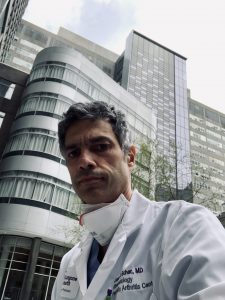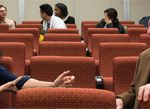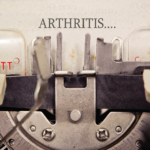A dazzling, omnipresent mantle of darkness has abruptly descended upon us. Our days (and nights) have been perturbed in ways both mundane and, at times, surreal. Many have felt the pillars of life being shaken at the ordinary surface of our routines, but also in a uniquely painful and profound manner. We are anxious, and disoriented and some even utterly paralyzed. We are being pushed to the limit, some physically, others emotionally. This plague has affected each one of us, our families and friends, and abruptly, it has altered the way we relate to one another.
For half a century, we managed to convince ourselves that advances in biotech and our ever-expanding access to devices and simulated platforms would take us to an incontrovertibly better place; that by bending the rules of time and space we would be able to seamlessly trade the real for the virtual.
The problem for this Brave New World, however, is that we humans have evolved to communicate in a manner that transcends the visual and the spoken. We need to be close. Our relationships require a level of intimacy that, for this peculiar moment in time at least, has now all but vanished.
We offer trust with a handshake, generate comfort with a smile, and illuminate someone’s desperate moments with a simple hug (often with a prolonged one). But what was once natural has now become transiently artificial, distant and cold.
We should, therefore, find solace & assurance that the future of rheumatology & our collective endeavor is bright.
Like all of you during the past few weeks, I have witnessed the unintended consequences of abdicating a piece of humanity in ways both trivial and vast. My children could not share laughter with their friends on their birthdays—try to blow out candles over Skype! Others were forced to break sacred promises; there were also those (many) moments when a fellow or a colleague cried on the phone, and all I could mumble was, “It’s going to be all right,” even when I wanted to console not just with my words, but with my arms and eyes.
And then there was Lucy, who could not be by her father’s side before he passed away. On her third day of mourning, she was told her aunt had also succumbed to the virus.
This plague, like the ones before, has brought fear, anxiety and an overwhelming sense of helplessness. There is fear of the unknown, fear of what the future may hold and fear of failing the moral test required to meet the challenge before us and rise to the occasion. But above all, as in the Middle Ages, there is the fear of death; the ultimate dread that incarnates the one battle that we know, with absolute certainty, cannot be won.
Fight for Life
Even when the odds of eternity are nonexistent, and our actions are knowingly futile in the long run, time and again these plagues uncover the better angels of our nature. That’s because, ultimately, we obstinately refuse to relinquish hope.
We seize on our existential fear of mortality and transform it into a fight for life. It is a gradual, but inevitable, metamorphosis of despair into integrity. And just like that, we realize that plagues are really about courage and bravery and character.
I’ve witnessed the Robs, the Eileens, the Peters and Pamelas of the world who enlisted first for the battle, unconditionally, no questions asked. And the Kristens among us, who had left practice but were compelled to return because their inner voices told them it was their moral duty to help heal the sick. There were also the Rebeccas and the Rochelles and the Dis, who have gotten sick but immediately after posting their test results (with pride!) continued to work on their projects and to care for patients in need. And then there was the other Rebecca, who has done all of the above (and more) with grace and composure.
I’ve seen the most remarkable group of fellows, residents, students and nurses show camaraderie, dedication and valor each step of the way. And then there is each one of you, who made the impossible possible, whether by adapting to new technologies in a matter of days, coalescing around intellectual endeavors to help understand this challenge better, extending a hand to your colleagues or offering the comfort of your voice to friends, family and countless patients.
We should, therefore, find solace and assurance that the future of rheumatology and our collective endeavor is bright.
Cycle of Life
This is the time of the year when many commemorate resurrection, first revelations or a journey from slavery to freedom. And for those who avoid deities altogether, this moment is simply devoted to welcoming the cycle of life that spring announces. But these are certainly no ordinary times, for I now know that we will go through this experience with intense pain, irreparable loss and enduring grief.
However, and as Camus’ Dr. Rieux noted before: “[Very soon] our whole town will rush outside to celebrate a crowded minute, when the time of suffering had ended and the time of forgetting had not yet begun.”
Because in the end, we will have learned once again what the plague really means.
It’s life; that’s all.
Jose U. Scher, MD, is an associate professor of medicine in the Division of Rheumatology, NYU School of Medicine, director of the Psoriatic Arthritis Center and director of the Microbiome Center for Rheumatology and Autoimmunity (MiCRA) at NYU-Langone Hospital for Joint Diseases.
Adapted and reprinted from a publication of NYU Langone Medical Center by permission.




